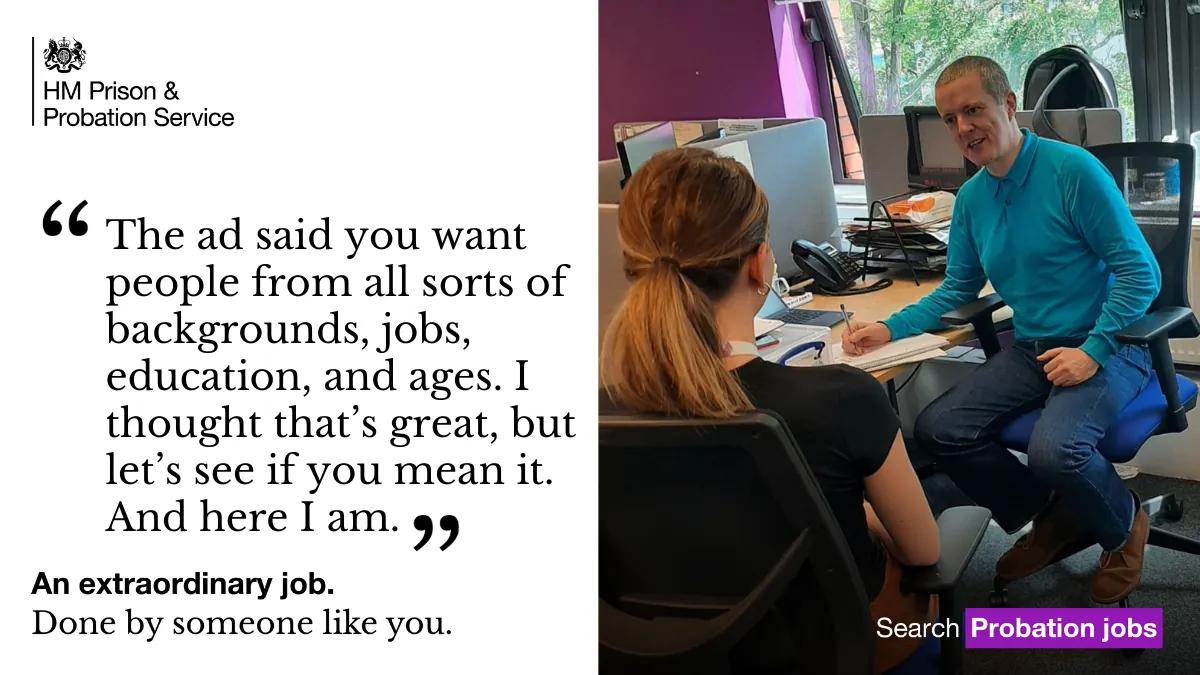Probation Service Crisis: Remote Work Risks and Mass Prisoner Release
Concerns rise as probation service faces challenges with remote working and impending mass prisoner release. Experts warn of potential risks to public safety due to understaffing and reduced face-to-face interactions.

The probation service in England and Wales is facing a critical juncture, with concerns mounting over the impact of remote working practices and an imminent mass release of prisoners. These issues are compounding existing challenges within a system already strained by understaffing and high caseloads.
A former probation officer with two decades of experience shared a revealing anecdote about the importance of in-office presence. During a rare visit to the office, she overheard crucial information about a high-risk offender under her supervision, highlighting the potential dangers of remote work in this field. This incident underscores the value of informal communication and "office gossip" in maintaining public safety.

The probation service, established in 1907, has undergone significant changes in recent years. In 2014, it was partially privatized, only to be returned to full public ownership in 2020. Despite these structural changes, the service continues to face numerous challenges, including a staffing shortfall of 1,700 officers and consistently high workloads.
On September 10, 2024, the government plans to release almost 2,000 prisoners sentenced to five years or fewer, nearly doubling the typical weekly release rate. This decision, aimed at reducing overcrowding, has raised concerns among victim advocates and probation experts. Nicole Jacobs, the domestic abuse commissioner, warns that victims of domestic violence are experiencing "sleepless nights" due to lack of support and notification about their perpetrators' release.
The probation service's capacity to manage this influx of cases is questionable, given its current state. Between 2010 and 2022, there was an average of one murder per week committed by individuals under probation supervision. Several high-profile cases have highlighted the potentially fatal consequences of probation failures:
- The 2021 murder of Michaela Hall by her partner, who was incorrectly classified as "medium risk"
- The 2021 murders of Terri Harris, her two children, and a friend by Damien Bendall, who was deemed "low risk"
- The 2022 murder of Zara Aleena by Jordan McSweeney, who was mistakenly categorized as "low risk"
These tragic incidents have raised questions about the effectiveness of risk assessment procedures and the impact of reduced face-to-face interactions between probation officers and offenders.
The debate over remote working in probation services continues. While it offers flexibility and may help with recruitment, critics argue that it hampers effective offender management. Martin Jones, HM Chief Inspector of Probation, emphasizes the importance of in-person contact for building relationships and accurately judging risk.
"Of course it's dangerous to the community if you're letting out criminals [even if] they're low-risk, but then you're not managing them adequately."
The probation service faces a complex set of challenges, including understaffing, high workloads, and the need to balance remote work with effective offender management. As the system prepares for the upcoming mass release of prisoners, concerns about public safety remain at the forefront. Addressing these issues will require significant investment, improved resources, and a careful reconsideration of working practices to ensure the probation service can fulfill its crucial role in public protection and offender rehabilitation.


































